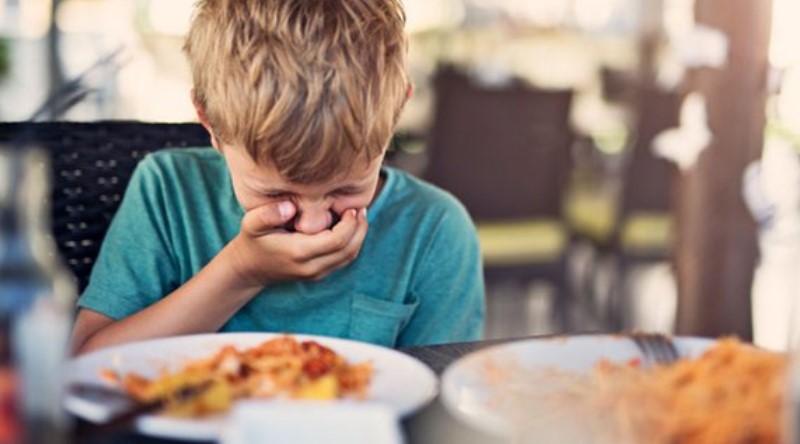The Ministry of Health's instruction on the prevention and handling of food poisoning in Vietnam
What are the details of the Ministry of Health's instruction on the prevention and handling of food poisoning in Vietnam? - Thanh Nhan (Hai Phong)

The Ministry of Health's instruction on the prevention and handling of food poisoning in Vietnam (Internet image)
On May 11, 2024, the Ministry of Health of Vietnam issued Official Dispatch 2487/BYT-ATTP regarding the prevention and handling of food poisoning.
The Ministry of Health's instruction on the prevention and handling of food poisoning in Vietnam
Implementing the instruction of the Prime Minister in Official Dispatch 44/CD-TTg dated May 3, 2024, on the prevention and handling of food poisoning, the Ministry of Health requests the Departments of Health of provinces and centrally-run cities, the Ho Chi Minh City Food Safety Department, the Food Safety Management Board of Danang City, and the Bac Ninh Province to urgently coordinate with relevant competent authorities to implement the following measures:
- Advise the inter-agency steering committee on food safety at the provincial/municipal level to form and implement plans to ensure food safety, monitor food safety risks, and prevent food poisoning, taking into account the local situation (economic and social conditions, disease situation). This includes strict compliance with Directive 13/CT-TTg dated May 9, 2016, of the Prime Minister on strengthening state management responsibilities in food safety, and Directive 17/CT-TTg dated April 13, 2020, of the Prime Minister on continuing to enhance state management responsibilities in food safety in new circumstances. Emphasis should be placed on holding the heads of various levels accountable for any violations of food safety laws within their jurisdictions.
- Strengthen information dissemination and awareness campaigns about the risks of food poisoning and preventive measures, especially at tourist destinations, collective kitchens in schools, industrial zones, street food vendors, etc. Utilize various forms of digital media and collaborate with local newspapers, radio stations, and television channels. Provide guidance on ensuring food safety in production, business, and consumption, particularly for traditional local foods or practices, to enhance awareness and change behaviors and habits that do not ensure food hygiene and safety in the selection, processing, storage, and use of food. Only use food products and ingredients that have clear origins, sources, and labels, and strictly avoid using expired, deformed, corroded, or altered products with unusual smells or colors. Avoid sealed packaging food items without proper refrigeration conditions, as this can create opportunities for the growth of anaerobic bacteria, such as Clostridium botulinum.
- Mobilize the participation of businesses, communities, organizations, and social groups to contribute to clean, high-quality, and safe food. Promote, praise, honor, and replicate advanced models of safe food production and business practices, while criticizing unsafe food production and business activities that pose risks to human health.
- Enhance inter-agency cooperation in inspecting, monitoring, and supervising food safety, with a particular focus on pre-packaged meal processing establishments, collective kitchens in industrial zones and schools, street food vendors, and bottled and packaged drinking water production and business facilities. Pay attention to appropriate monitoring and guidance measures for mobile food services, mass meals, wedding receptions, and large-scale memorial services within the jurisdiction. Take strict and immediate actions to handle and suspend the operations of establishments that fail to meet food safety conditions or lack the required food safety certificates (for regulated entities). Publicize the violations and the results of handling violations committed by organizations and individuals engaged in food production and business activities through mass media to timely alert producers, businesses, and consumers.
- Coordinate with relevant agencies from the Ministry of Industry and Trade and the Ministry of Agriculture and Rural Development to carry out supervision, risk analysis, and measures for prevention and warning of food safety incidents; trace the origin, recall, and handle unsafe food products within the managed domains as prescribed.
- Prepare plans, strategies, resources, medicines, and equipment to effectively investigate, handle, and mitigate the consequences of food safety incidents and food poisoning. Provide timely emergency treatment and ensure the best possible health and safety for the public. Strengthen training and capacity building for specialized personnel in examination, emergency treatment, and care, while simultaneously raising awareness and providing guidance to the public on seeking immediate medical attention at the nearest healthcare facility when experiencing suspected food poisoning symptoms.
More details can be found in Official Dispatch 2487/BYT-ATTP, issued on May 11, 2024.
- Key word:
- food poisoning
- Vietnam
- Number of deputy directors of departments in Vietnam in accordance with Decree 45/2025/ND-CP
- Cases ineligible for pardon in Vietnam in 2025
- Decree 50/2025 amending Decree 151/2017 on the management of public assets in Vietnam
- Circular 07/2025 amending Circular 02/2022 on the Law on Environmental Protection in Vietnam
- Adjustment to the organizational structure of the Ministry of Health of Vietnam: Certain agencies are no longer listed in the organizational structure
- Vietnam aims to welcome 22-23 million international tourists in Vietnam in 2025
-

- Number of deputy directors of departments in Vietnam ...
- 15:04, 05/03/2025
-

- Cases ineligible for pardon in Vietnam in 2025
- 14:43, 05/03/2025
-

- Decree 50/2025 amending Decree 151/2017 on the ...
- 12:00, 05/03/2025
-

- Circular 07/2025 amending Circular 02/2022 on ...
- 11:30, 05/03/2025
-

- Adjustment to the organizational structure of ...
- 10:34, 05/03/2025
-

- Notable new policies of Vietnam effective as of ...
- 16:26, 11/04/2025
-
.Medium.png)
- Notable documents of Vietnam in the previous week ...
- 16:21, 11/04/2025
-
.Medium.png)
- Notable documents of Vietnam in the previous week ...
- 16:11, 02/04/2025
-
.Medium.png)
- Notable new policies of Vietnam to be effective ...
- 16:04, 02/04/2025
-
.Medium.png)
- Notable new policies of Vietnam effective from ...
- 14:51, 21/03/2025

 Article table of contents
Article table of contents
